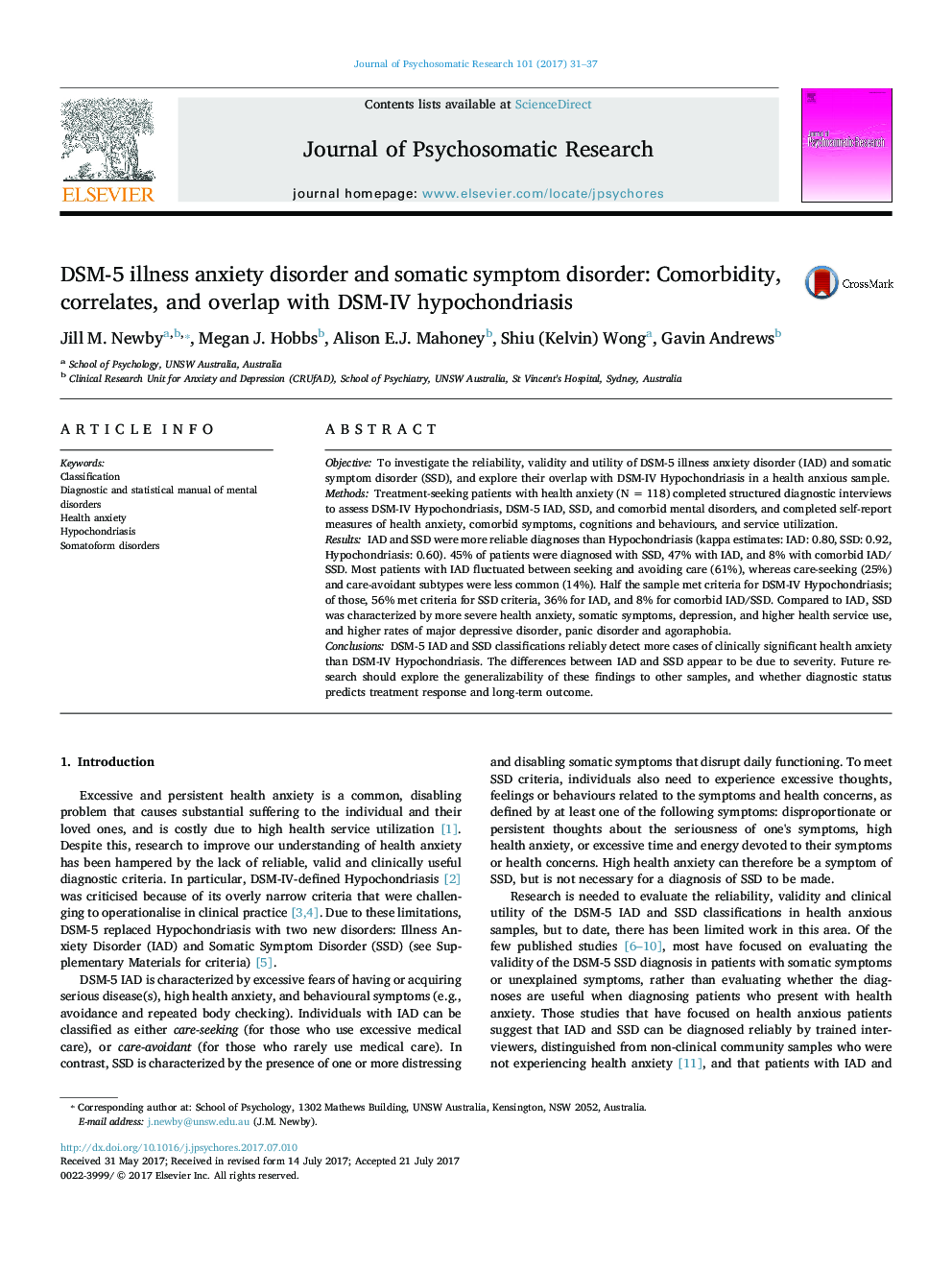| Article ID | Journal | Published Year | Pages | File Type |
|---|---|---|---|---|
| 5045818 | Journal of Psychosomatic Research | 2017 | 7 Pages |
â¢Assessed reliability, validity and clinical utility of DSM-5 IAD and SSD diagnosesâ¢DSM-5 IAD and SSD identified more cases than DSM-IV Hypochondriasis.â¢IAD was more similar than different to SSD in a health anxious sample.â¢DSM-5 IAD and SSD diagnoses were more reliable than Hypochondriasis.
ObjectiveTo investigate the reliability, validity and utility of DSM-5 illness anxiety disorder (IAD) and somatic symptom disorder (SSD), and explore their overlap with DSM-IV Hypochondriasis in a health anxious sample.MethodsTreatment-seeking patients with health anxiety (NÂ =Â 118) completed structured diagnostic interviews to assess DSM-IV Hypochondriasis, DSM-5 IAD, SSD, and comorbid mental disorders, and completed self-report measures of health anxiety, comorbid symptoms, cognitions and behaviours, and service utilization.ResultsIAD and SSD were more reliable diagnoses than Hypochondriasis (kappa estimates: IAD: 0.80, SSD: 0.92, Hypochondriasis: 0.60). 45% of patients were diagnosed with SSD, 47% with IAD, and 8% with comorbid IAD/SSD. Most patients with IAD fluctuated between seeking and avoiding care (61%), whereas care-seeking (25%) and care-avoidant subtypes were less common (14%). Half the sample met criteria for DSM-IV Hypochondriasis; of those, 56% met criteria for SSD criteria, 36% for IAD, and 8% for comorbid IAD/SSD. Compared to IAD, SSD was characterized by more severe health anxiety, somatic symptoms, depression, and higher health service use, and higher rates of major depressive disorder, panic disorder and agoraphobia.ConclusionsDSM-5 IAD and SSD classifications reliably detect more cases of clinically significant health anxiety than DSM-IV Hypochondriasis. The differences between IAD and SSD appear to be due to severity. Future research should explore the generalizability of these findings to other samples, and whether diagnostic status predicts treatment response and long-term outcome.
